Bam Interim Report - 1
January 30, 2004
As in previous disasters, many concerned individuals have contacted
us, have made contributions to ERFO, and have offered their help. This outpouring
of support for our cause has had a heart warming effect since many a time,
in the immediate aftermath of an earthquake, few people share our long term
concerns and stop at sending supplies, blankets and tents. Your validation
and support has encouraged us to redouble our efforts and engage the assistance
of others interested in public service – as we are all volunteers and
lead a full schedule of professional and private lives.
With the help of friends and supporters all over the United States
and Canada, we have been active in raising funds to help the destitute orphans
of Bam. Several fundraising events to the exclusive benefit of ERFO have been
scheduled by local civic groups and associations in Boston, MA (Feb. 21 & 24);
Long Island, N.Y. (Feb. 6); New Jersey (Feb. 8); and San Francisco, CA (March
12). In addition, a number of other charitable organizations have pledged to
contribute part of their fundraising proceeds to ERFO. We will publish the
details of our fundraising activities and the people involved in making it
all possible in our next report.
Thanks to the National Iranian American Council lobbying in Washington
and our own media outreach, the sanction against transfer of charitable donations
to the Bam quake victims was lifted effective December 27, 2003 for 90 days.
This provides a very short period of time to raise money and to use it properly
in Bam. We are now actively lobbying for the extension of this waiver.
Mrs. Massy Akhavan Farivar, an ERFO board member who went to
Bam within days of the earthquake, has returned to Boston after spending 10
days in Bam. Aside from making contacts with the Iranian officials in Bam,
she spent her efforts on assessing the needs of the surviving children, meeting
with the survivors, and coordinating with the representatives of other relief
agencies.
Based on our relief activities for the survivors of recent earthquakes,
the Behzisti (Social Services Office) management and cadre are familiar with
and respect our organization, mission, and representatives in Iran. Moreover,
our contacts with Kerman University officials located in the provincial capital – developed
during the practical training seminars held at the university’s Medical
School by Iranian-American medical professionals for the past 2 years – helped
facilitate access to local people, resources and locations.
ERFO has notified Bam’s Behzisti authorities that we are
ready, willing and eager to proceed with our financial adoption procedures
(see methodology) as soon as they provide us with
the orphans’ information. Massy and our Director in Iran are in frequent
weekly contacts with the authorities in order to achieve this first but important
milestone.
Sadly, due to the large number of deaths and the dispatch of
survivors to hospitals all over Iran, the true number of orphans is not yet
known. Massy was told by the Behzisti authorities that currently there are
more than 2000 dispossessed children under their care. However, some of them
may have one or both parents alive and still under treatment for injuries suffered
as a result of the earthquake. They also expect that some family members not
living in Bam may come to take custody of a number of these children.
The government is also evaluating the option of giving some children
- less than 2 years old - for adoption to those families which have previously
registered for child adoption, live in Iran and meet the legal criteria. *
Once everything is said and done, the officials hope that the
number of truly needy orphans will be in the high hundreds. According to ERFO’s
current estimates, to establish an endowment for these children we need to
provide $2,000 per child . As such, our projections point to the need for raising
$1.5 to $2 million for the surviving orphans in Bam.
So far, since December 26, 2003, we have raised and sent $200,000
to Iran for the benefit of these orphans. if we are to reach the goal of leaving
no Bam orphan on his own, we need your help to reach others who might be in
a position to further this worthy cause.
Again, we thank you all for your generous contributions, your
involvement, and your support.
Mohammad Farivar, MD
President
* We have received several emails and phone calls about adopting
orphans. According to the laws related to adoption in Iran, adopting children
by foreign nationals, except those of Iranian origin, is not allowed. For Iranians
living abroad this is a difficult but possible task. They need to apply via
the central Behzisti office; the family should travel to Iran and the mother-to-be
is required to spend 6 months with the child (this is negotiable in some cases);
and the couple must transfer part of their assets to the child. This of course,
is the procedure if the adopting family qualifies; that is, if they have been
married for 5 years, have no children of their own, family income is adequate,
have no criminal records or drug addiction.
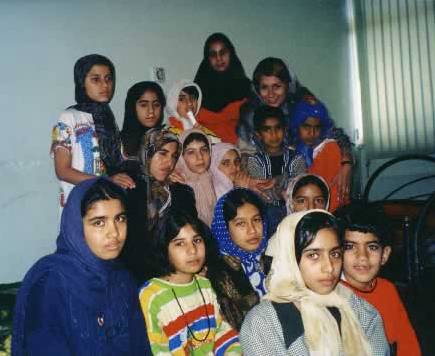
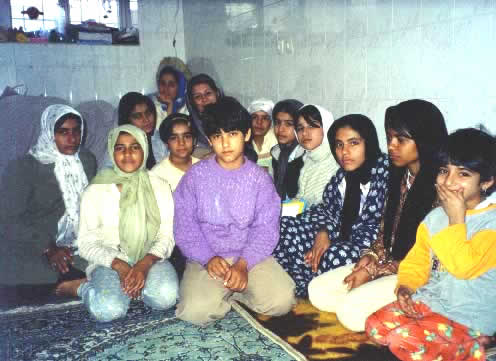
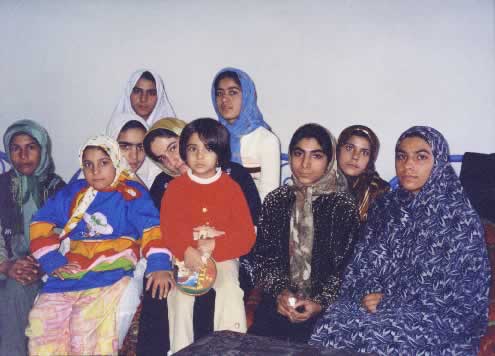
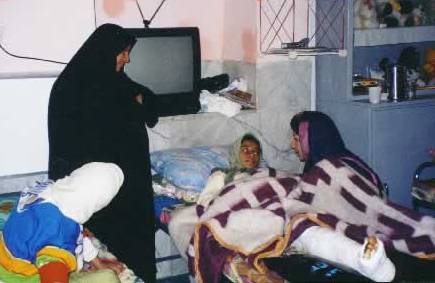
Massy spent time with children, mothers, family members, and
volunteer workers. She consoled the surviving victims mostly women, acted as
an intermediary between them and the relief workers mostly men, and assisted
them in attaining women's special clinical needs.
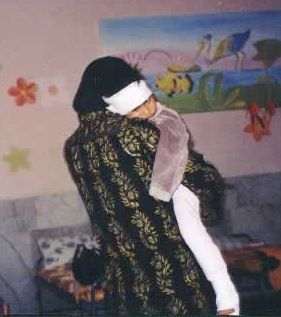
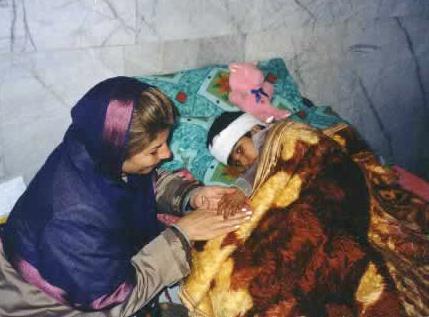
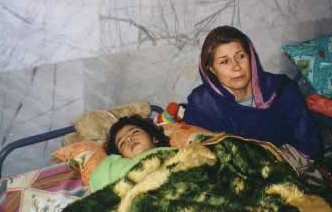
On her daily visits to orphanages, she brought them what she
felt could lift their spirits like candies, cookies and fruits, as well as
what they desperately needed like sweaters, hats, warm overcoats, undergarment
and socks.
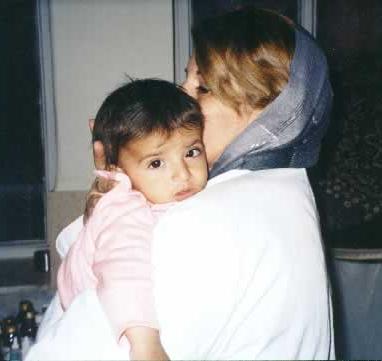
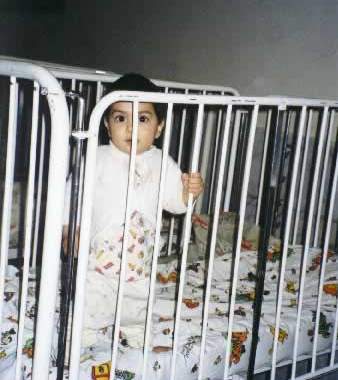
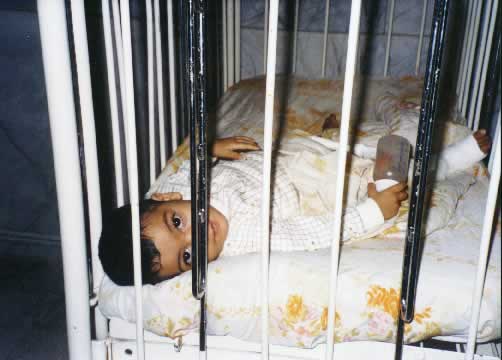
She spent many hours with the children most affected by their
loss of loved ones - as evident by their behavior.
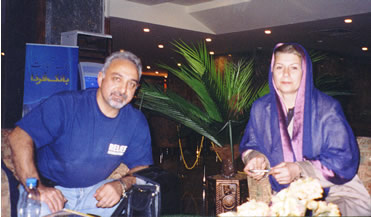
Whenever possible, she intervened on behalf of and facilitated
the relief efforts of foreign relief teams.
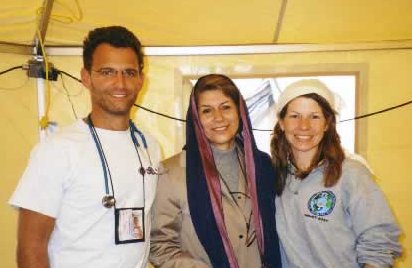
In the field hospitals she comforted children and talked them
into allowing surgeons to treat their wounds and care for their fractures.
Visit to a Kerman Orphanage Hosting
Bam Survivors

Arriving by ambulance from Bam, two new infants are received by Behzisti staff.

Orphan offers his only candy to Massy.
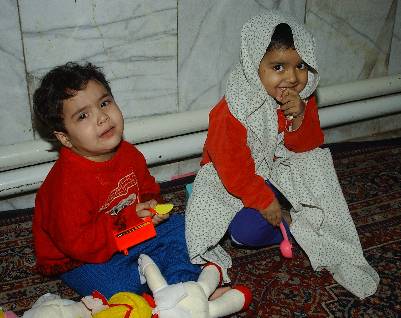
Children play with the toys they have received.
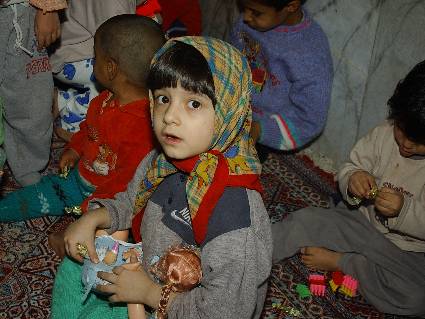
She wants help fixing her broken doll.
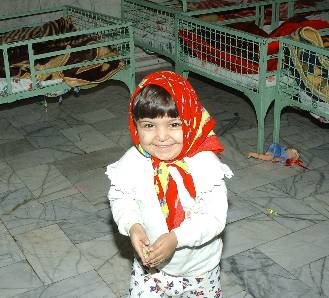
She invites Massy to play a game.
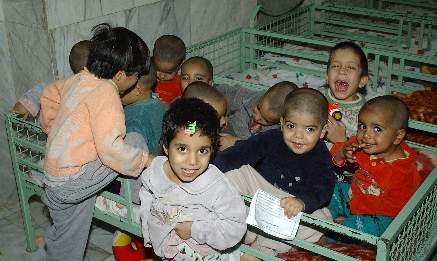
Boys' heads have been shaven to distinguish them more easily.
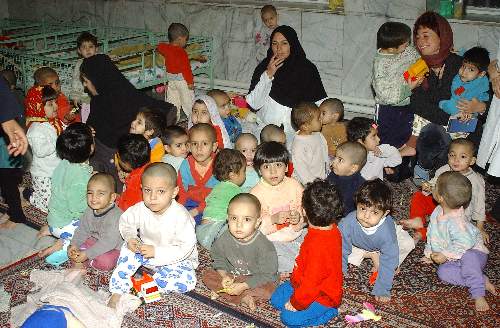
These Bam children lived with their parents at home just 10 days before.

